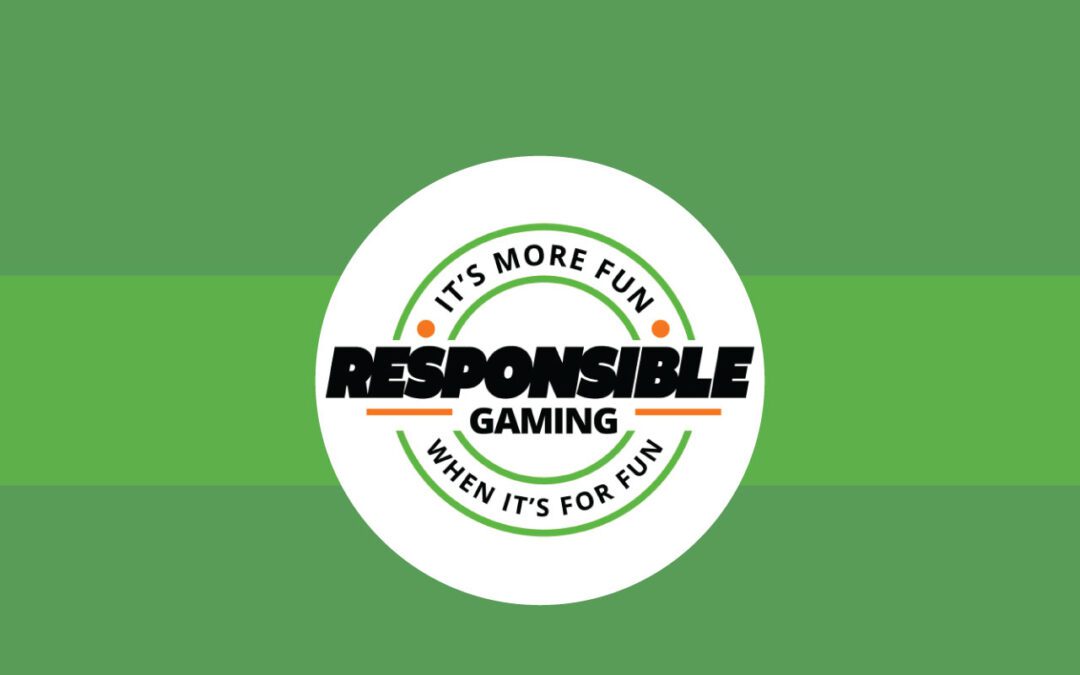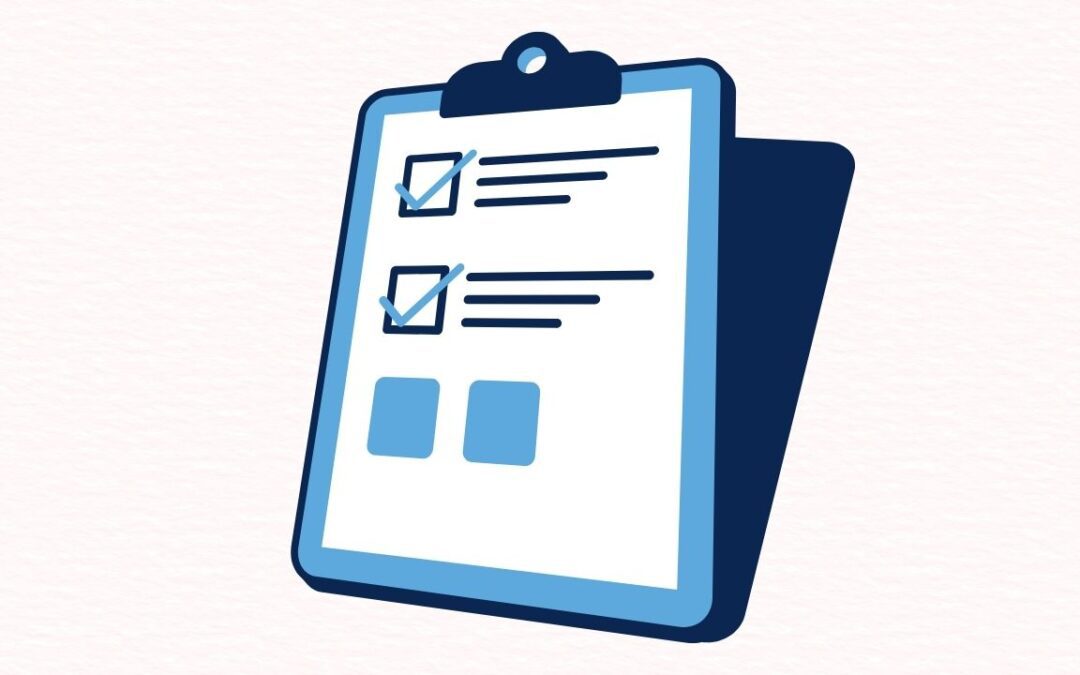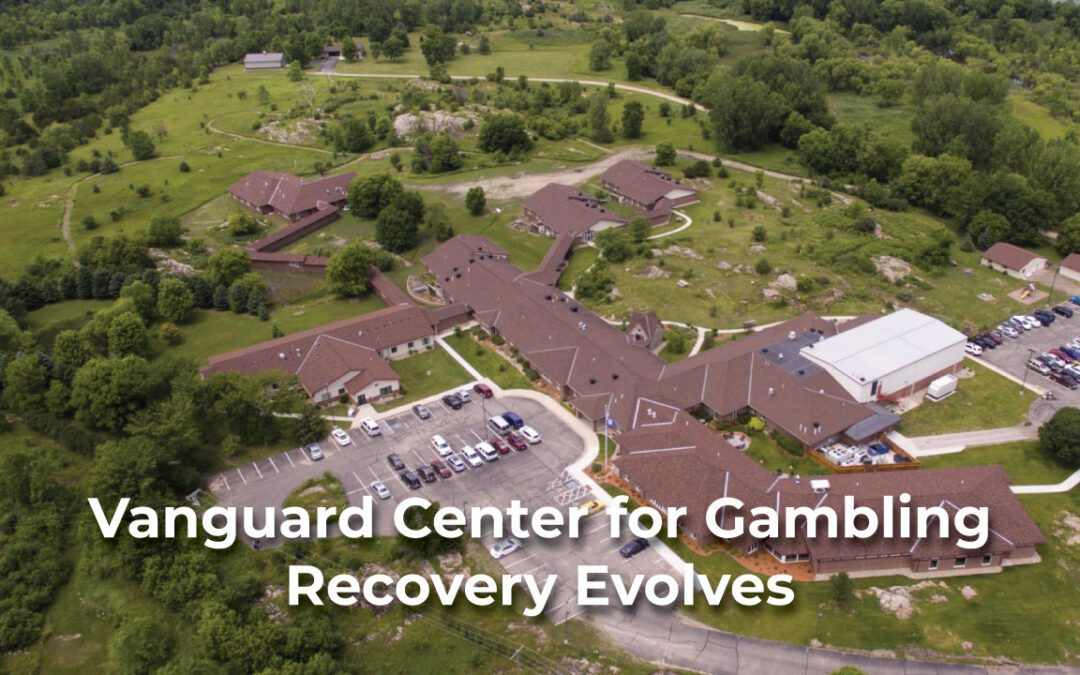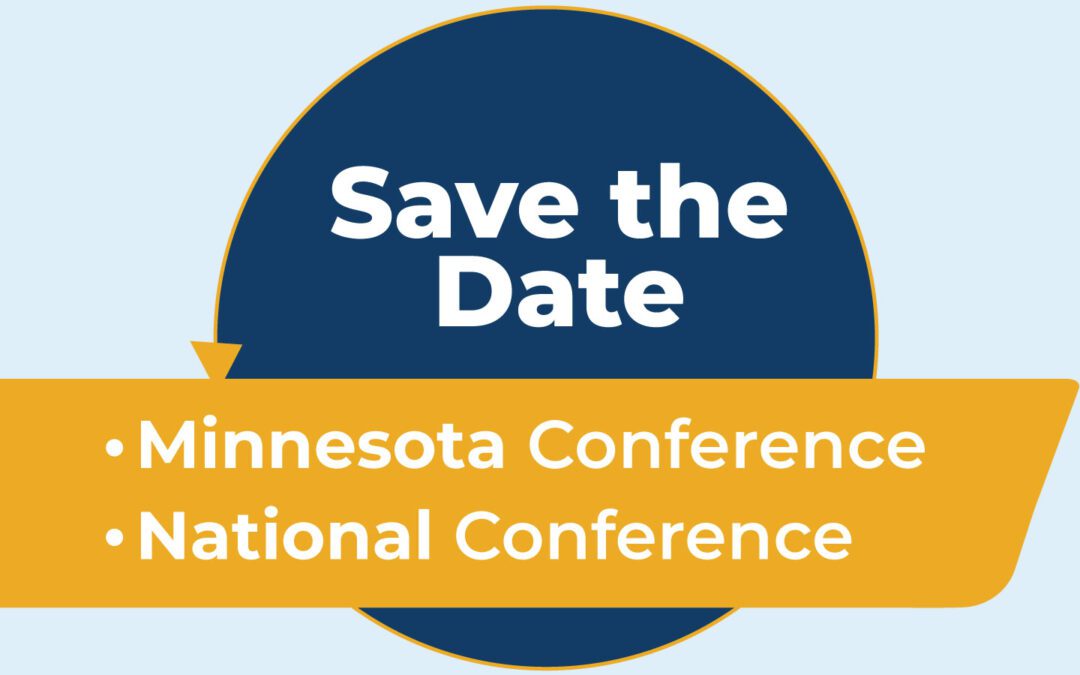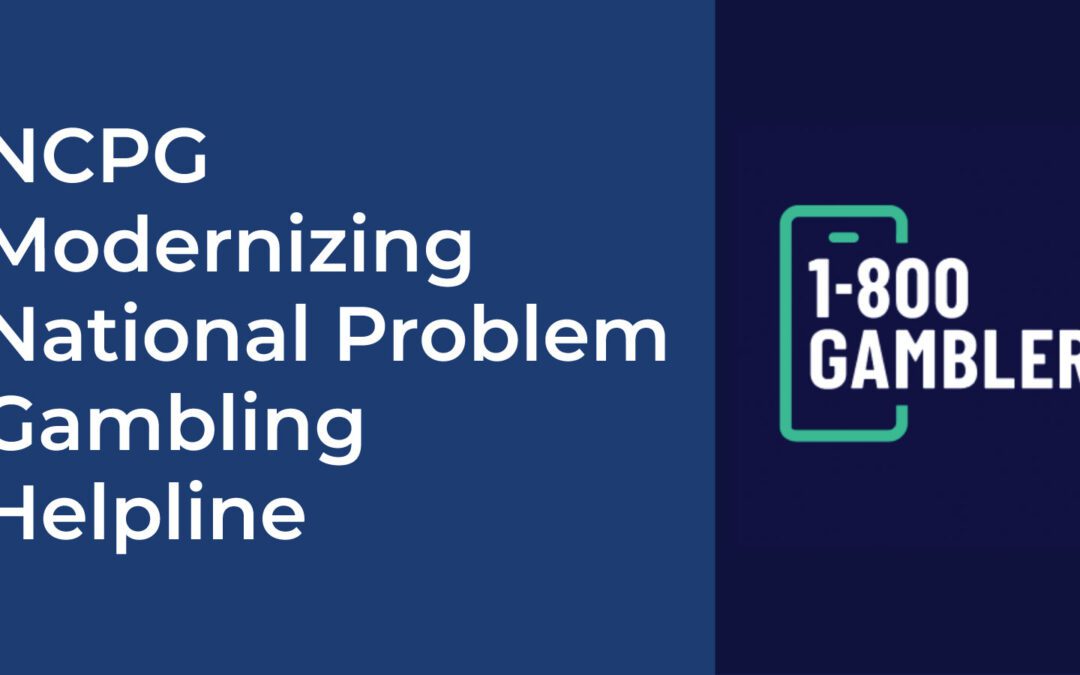
Dec 17, 2025 | HEALTHY PLAY, HELP, PROBLEM GAMBLING, RESOURCES, SPORTS BETTING
MNAPG posed questions to Lori Kalani, DraftKings’ chief responsible gambling officer to learn more about DraftKings’ problem gambling efforts. Below are her responses:
MNAPG: We understand that My Budget Builder and My Stat Sheet are new responsible gaming (RG) tools for DraftKings. Can you share more about them?
LK: My Budget Builder guides customers through a simple process to set personalized entertainment budgets, reminders and limits. My Stat Sheet provides customers with a clear personalized snapshot of their play activity, including time spent, deposits, withdrawals, wagers and outcomes. Both are designed to help customers make informed decisions and play responsibly.
MNAPG: What information is included with alerts and does anything happen if a customer exceeds the limits they set?
LK: We proactively encourage every player to set budgets for their deposit amounts, play time and size of bets, and we provide access to a range of tools and resources with which they can engage. Customers receive reminders when they approach the limits they’ve set. If a limit is reached, the platform enforces it automatically—for example, preventing additional deposits or gameplay until the current limit resets. Once a limit is set, it cannot be increased or cancelled until the timeframe for the limit has ended. More restrictive limits can be added at any time.
MNAPG: How many customers are currently using some of DraftKings’ responsible gaming tools and resources?
LK: Since launching our Responsible Gaming Center in 2024—a centralized hub for all the DraftKings RG tools and resources available at rg.draftkings.com—more than 5.6 million customers have visited. Approximately 3.5 million unique customers have used My Stat Sheet since the industry-first tool was introduced early last year. This June, we launched our newest tool, My Budget Builder, and we expect usage to increase throughout the NFL season.
MNAPG: How do you help make customers aware that these tools and resources exist?
LK: We highlight responsible gaming tools and resources throughout the customer journey. Some examples include promoting RG tools and resources at onboarding, in-app messaging, emails and various campaigns throughout the year. Within the app and online, an RG shield icon appears at the top of the screen, making the DraftKings Responsible Gaming Center just one click away so that tools and resources are seamlessly available as part of the product experience. To mark this year’s Responsible Gaming Education Month, we launched an NFL sweepstakes that incentivizes customers who use tools like My Budget Builder and My Stat Sheet with the chance to win weekly NFL ticket prizes, culminating in a grand prize trip to the Super Bowl.
MNAPG: Do you work with any external organizations or researchers to improve your responsible gaming efforts?
LK: Yes. We work with organizations such as the Cambridge Health Alliance, BetBlocker, Evive, the Responsible Online Gaming Association (ROGA) and the International Center for Responsible Gaming. Our work with Cambridge Health Alliance includes expanding research on responsible gaming and facilitating new opportunities to educate customers about the tools and resources that are available to help them play responsibly. We also provide funding to the National Council on Problem Gambling. DraftKings’ State Council Funding (SCF) program provides annual donations to 35 state problem gaming councils across the country to support their work. Since announcing the SCF program in 2022, we have donated millions of dollars, including to the Minnesota Alliance on Problem Gambling. (Editor’s note: MNAPG used the funds provided by DraftKings to develop a pilot casino employee training program that’s currently being tested at Canterbury.)
MNAPG: Do you proactively identify customers who may be having challenges? If so, how is this done?
LK: We proactively encourage every player to set budgets for their deposit amounts, play time and size of bets, and we provide access to a range of tools and resources with which they can engage. We use modeling techniques and advanced technology, including machine learning, to help identify when someone may no longer be playing for fun, which is then reviewed by our Responsible Gaming team for further analysis.
MNAPG: Does DraftKings work with the other members of the Responsible Online Gaming Association (ROGA) to ensure that if one of your customers is given a time out or excluded that it is active across all the other platforms?
LK: Today, most jurisdictions where we operate maintain shared exclusion databases, which are distributed to all licensed operators. In some states, operators also contribute their own self-exclusion data. While there isn’t yet an industry-wide system among operators, through ROGA we have announced the creation of a centralized exclusion clearinghouse. The first phase will introduce a national shared self-exclusion list so that when a player self-excludes with one member operator, that exclusion will also extend across all ROGA member platforms.
MNAPG: How do you see your RG tools and resources evolving over the next 2–3 years?
LK: In the next few years, we expect RG tools and resources to further evolve through AI and personalization. Smarter technology will allow these tools and resources to adapt dynamically, making them even more intuitive and seamless to the customer.
MNAPG: How do you measure success in responsible gaming initiatives?
LK: We consider, among other things, adoption rates, customer feedback and independent evidence-based research as we continue to enhance our responsible gaming tools and resources. Success means responsible play continues to be embedded in the DraftKings experience for every customer.

Dec 17, 2025 | RESEARCH, RESOURCES
The National Council on Problem Gambling (NCPG) has released new findings from its National Survey on Gambling Attitudes and Gambling Experiences (NGAGE 3.0), offering an updated picture of how Americans are gambling—and what they believe about gambling.
The first NGAGE survey was conducted in 2018, just as states began legalizing sports betting following a landmark Supreme Court decision that opened the door for rapid expansion across the country. A follow-up survey in 2021 revealed a sharp increase in risky gambling behavior. At the time, researchers weren’t sure whether the spike reflected the spread of sports betting or the stress and isolation from the COVID-19 pandemic.
The 2024 survey, conducted after pandemic restrictions had largely lifted, shows that gambling-related risks have stabilized. About 8% of U.S. adults—nearly 20 million people—reported experiencing at least one sign of potentially problematic gambling “many times” in the past year. That number is down from 11% in 2021 but still higher than the 7% reported before sports betting became widely available.
“While it’s reassuring that the increases in problematic gambling behavior we saw in the 2021 survey seem to have abated along with the easing of the COVID-19 pandemic, maladaptive gambling remains a significant public health problem,” says Don Feeney, who helped design the NGAGE surveys. “Increased efforts at prevention and education are essential if we are to reduce gambling-related harm.”
The survey also sheds light on who is most at risk. Younger adults, men, online gamblers and sports bettors were among the groups most likely to report signs of risky play. Those who gamble frequently or participate in many different gambling activities are especially vulnerable.
“The best predictors of a gambling problem aren’t participation in any particular form of gambling,” explains Don. “Instead, the best predictors are the intensity of gambling involvement—how frequently someone is gambling—and the breadth of involvement—how many different forms of gambling someone is involved with.”
Even as legalized sports betting has expanded to 39 states, Washington, D.C. and Puerto Rico, the overall share of Americans placing sports bets has remained steady at about 23%. However, the ways people are betting are changing. The number of sports bettors making parlay bets—wagers that combine multiple outcomes for the chance of a large payout—has nearly doubled since 2018. Researchers note that these types of bets can be especially appealing to those trying to “win back” losses quickly, a pattern often associated with risky play.
Another key finding involves public attitudes toward gambling addiction. While nearly three in four adults agree that gambling addiction is similar to drug or alcohol addiction, fewer than 40% consider its consequences “very severe.” Many still believe gambling problems stem from a lack of willpower or moral weakness rather than recognizing them as treatable health conditions.
There is, however, some encouraging progress. Awareness of problem gambling helplines has increased, and most people understand that helplines exist to help people struggling with gambling problems.
“We’ve learned that we can improve awareness that there’s help for a gambling problem, and that awareness is greatest among those most in need of receiving services,” says Don. “However, these are the same people who are most skeptical that treatment works. We need to make the effectiveness of treatment an integral part of our message.”
Despite the progress, challenges remain. Public funding for problem gambling services has increased—from about $80 million in 2018 to $134 million in 2023—but seven states still provide no funding at all. On average, states spend just 35 cents per resident on prevention, education and treatment programs.
Continued investment and public awareness are critical to preventing gambling-related harm. Prevention and education work, but more people need to understand that help works too—and that recovery from gambling problems is possible.
The survey underscores that even as gambling becomes more common, many people still misunderstand the risks. Open discussion about gambling addiction, promoting the effectiveness of treatment and making help easy to find is necessary to keep gambling a form of entertainment rather than a source of harm.

Jun 18, 2025 | RECOVERY, RESOURCES
After more than 30 years, the Vanguard Center for Gambling Recovery in Granite Falls,
Minnesota’s only residential program for problem gambling and one of only a handful of such programs in the nation, continues to grow and involve. Northern Light sat down with Steph Almanza, unit coordinator for Vanguard Center for Gambling Recovery, to learn more about how the program is evolving to help gamblers and their affected others.
NL: What is the approach you employ when treating problem gamblers?
SA: At Project Turnabout, a holistic approach to gambling recovery is at the core of our programming. Gary Van Eps leads individuals through a foundational 12-step group that explores each step in depth. This group setting encourages participants to examine their experiences with powerlessness related to gambling, while also addressing ego, character flaws and the role of spirituality in their recovery journey. Spiritual support is further provided through dedicated sessions on grief, loss and spirituality by Chaplain Robert Skjegstad. Additionally, recreational therapy is offered daily as a structured part of the healing process, helping clients rediscover joy and build healthy coping strategies.
Our program is rooted in cognitive behavioral therapy (CBT), which has a strong evidence base for addressing both substance and behavioral addictions, including gambling. A core component of CBT involves identifying and restructuring cognitive distortions and negative automatic thoughts, unhelpful patterns of thinking that often reinforce gambling behavior, minimize consequences and drive emotional distress. Through this approach, clients gain the insight and tools needed to respond differently to emotional triggers, rather than reverting to gambling as a coping mechanism.
NL: What role does shame play in diagnosis and treatment?
SA: We spend a lot of time exploring shame, as it can be a significant barrier to healing. Many clients experience shame not just for their actions, but as a reflection of who they believe they are. Without addressing shame, it can become a hidden driver of relapse. By teaching the difference between guilt and shame, and encouraging clients to develop self-compassion, we support a more sustainable and forgiving path toward change.
As part of this process, clients also learn when and how to apply coping skills, shifting from reactive patterns to more intentional behaviors. We help them build emotional regulation skills that are applicable both inside and outside of treatment.
NL: What else do you focus on?
SA: We also focus heavily on communication and boundaries. These skills are essential for long-term recovery and for repairing the relational harm that often accompanies gambling addiction. Clients explore past patterns of people-pleasing, avoidance, dishonesty or conflict, and learn to set healthy boundaries with themselves and others. These relational tools not only support accountability but also reduce the likelihood of returning to toxic dynamics that may trigger relapse.
NL: How do you incorporate family into the treatment process?
SA: We provide dedicated family sessions, as gambling rarely impacts the individual alone. Loved ones are often affected by broken trust, financial loss and emotional trauma. Family work helps reestablish communication, set healthy expectations and create a supportive post-treatment environment—one where both the individual and their support system can continue to heal together.
NL: What else is on the horizon for Vanguard?
SA: Recognizing the lack of resources in rural areas, Project Turnabout has established Growth Group, a monthly alumni meeting held on the third Saturday of each month. This group invites former clients—who are at least six months post-treatment—to return, share progress, discuss challenges and offer peer support to current participants. This continuity fosters a strong sense of community and ongoing accountability.
NL: What kind of practical emphasis is provided to clients?
SA: In addition to emotional and spiritual care, the program places a strong emphasis on mental health and practical life skills. Clients receive weekly one-on-one therapy sessions and can consult with a psychiatrist for medication management, if needed. Financial education is also a vital part of the curriculum, covering budgeting, debt management and connection to relevant community resources.
The program also integrates practical tools to aid in relapse prevention. One such tool is Gamban, an online self-exclusion service for individuals seeking to block access to gambling websites. For those looking to exclude themselves from physical gambling establishments, staff provide hands-on support to navigate this often-complex process. This includes assistance with completing self-exclusion forms, gathering required identification, securing notarization and submitting documents by mail. Clients are also guided through the additional step of contacting casinos to stop promotional mailers, emails and other marketing communications—all common relapse triggers.
Together, these services create a comprehensive, compassionate framework to support lasting recovery from gambling addiction.
Vanguard Center for Gambling Recovery is a residential program solely for those suffering from problem gambling. The Center provides men and women aged 18 and older with the tools necessary to begin their process to recovery from gambling and discover some of the obstacles in their lives that may challenge long-term recovery. For more information, visit https://www.projectturnabout.org/treatment/gambling-recovery/vanguard.

Nov 12, 2024 | CONCERNED OTHERS, HELP, PROBLEM GAMBLING, RESOURCES
Perhaps no other addiction damages one’s financial resources as much as gambling disorder. Indeed, the ability to regain financial health is a critical aspect of recovery from the addiction.
Recognizing the unique interplay between financial discipline and gambling recovery, MNAPG is excited to share a new and valuable resource for those experiencing issues from gambling — whether for the gambler or a family member affected by the gambler’s behavior. Starting in October, MNAPG began offering specialized financial counseling through the Financial Choice services of LSS Financial Counseling.
This joint effort pairs the financial expertise of LSS counselors with the problem gambling awareness training offered by MNAPG. Those who take advantage of this service will meet with a financial counselor who understands how gambling can negatively impact an individual or family’s finances.
This benefit provides access to six free and confidential financial counseling sessions. These sessions provide the guidance and support needed to address financial challenges brought on by problem gambling and to chart a path forward to financial stability.
The experienced and non-judgmental counselors at LSS Financial Counseling can help:
· Assess one’s current financial situation
· Create a personalized budget and debt management plan
· Develop strategies to avoid future financial pitfalls
· Set and achieve long-term financial goals
Sessions are available in person, by phone or online — whichever is most comfortable. Those interested in taking advantage of this free service should contact LSS Financial Counseling at 800-528-2926 and mention assistance for problem gambling to schedule an appointment. LSS Financial Counseling is an experienced nonprofit, full-service credit counseling agency.

May 23, 2024 | ABOUT MNAPG, PROBLEM GAMBLING, PROFESSIONALS, RESOURCES
Minnesota Conference
The Minnesota Conference on Problem Gambling takes place on Thursday, Sept. 19 at the Hilton Minneapolis/Bloomington. While we’re still finalizing the day’s sessions, here are some topics we plan to cover:
- The intersection of gambling and suicide
- Financial counseling for families
- The impact of gambling on families
- Community leader panel discussion about gambling
- Update on sports betting legislation
- National gambling attitudes survey results
Please check mnapg.org in the coming months for additional information about the conference as we solidify the agenda.
National Conference
The National Conference on Gambling Addiction & Responsible Gambling takes place in San Diego on July 17-19. The conference brings together world-class presenters to deliver powerful and insightful messages about problem gambling and responsible gambling. For more information and to register, visit ncpgconference.org.

May 22, 2024 | HELP, PROBLEM GAMBLING, RESOURCES
The National Council on Problem Gambling (NCPG) is making significant improvements to the National Problem Gambling Helpline. The changes are expected to provide consistent standards across participating states and provide insights into those calling the helplines, ultimately making help more accessible to people in need of problem gambling information and support services.
There are four primary aspects to the modernization project, which began in 2021. The first was establishing a national helpline number, 1-800-GAMBLER, something that was initiated in 2022. The single national number means a reduction in the number of state helpline numbers that need to be listed in national gambling ads. It also ensures that anyone living in participating states will be automatically routed to their local state helpline when I dialing 1-800-GAMBLER.
The second part of the project is upgrading the technology. This involved improving telephony and routing systems, synchronizing text and chat data collection forms, and ensuring access to language translation for services for all contact centers within the National Problem Gambling Helpline Network. While this work isn’t flashy to the public, it ensures that everyone gets connected to their contact center efficiently and effectively, and that language is not a barrier to care.
The third portion of the project involves working with the 27 contact centers that comprise the network to help each one grow, standardize communication and training, and ensure the centers obtain accreditation with the appropriate governing body.
The final aspect of the project relates to data collection. NCPG is working with the various contact centers to get permission to gather specific helpline data. This will provide insights into trends about callers using the service and the reason for their call, ultimately allowing NCPG to better support advocacy efforts at the national and state levels.
NCPG’s Helpline Committee has developed more than 15 data points they’re seeking to obtain from the contact centers. Some of the information includes who is calling the helpline (family member, individual who gambles, etc.), the kind of gambling that has caused problems (sports gambling, lottery, etc.), and the type of referrals made (to treatment, to peer support, warm transfer to crisis services, etc.).
“This information will allow us to identify and forecast trends, which will inform state and national advocacy efforts,” says Jaime Costello, director of programs for NCPG. “For example, if we see that peer services are becoming a more common referral option, we’ll be able to help the states advocate for more resources. Data strengthens advocacy efforts.”
NCPG hopes to complete the initial stages of the National Problem Gambling Helpline Modernization Project by the end of the year and is hoping to extend the work beyond 2024. NCPG is seeking to secure additional or extended funding to ensure that the project can be continued through to completion. Funding for the National Problem Gambling Helpline Modernization has been provided by the NFL via the NFL Foundation.
Note: Minnesota will continue to advertise its own helpline number 1-800-333-HOPE (4673) for in-state messaging. If sports betting is approved, the NCPG helpline number will be used in ads to eliminate the need to have multiple numbers printed. Regardless of which number a Minnesotan calls, they will be connected to the state’s help center vendor.
